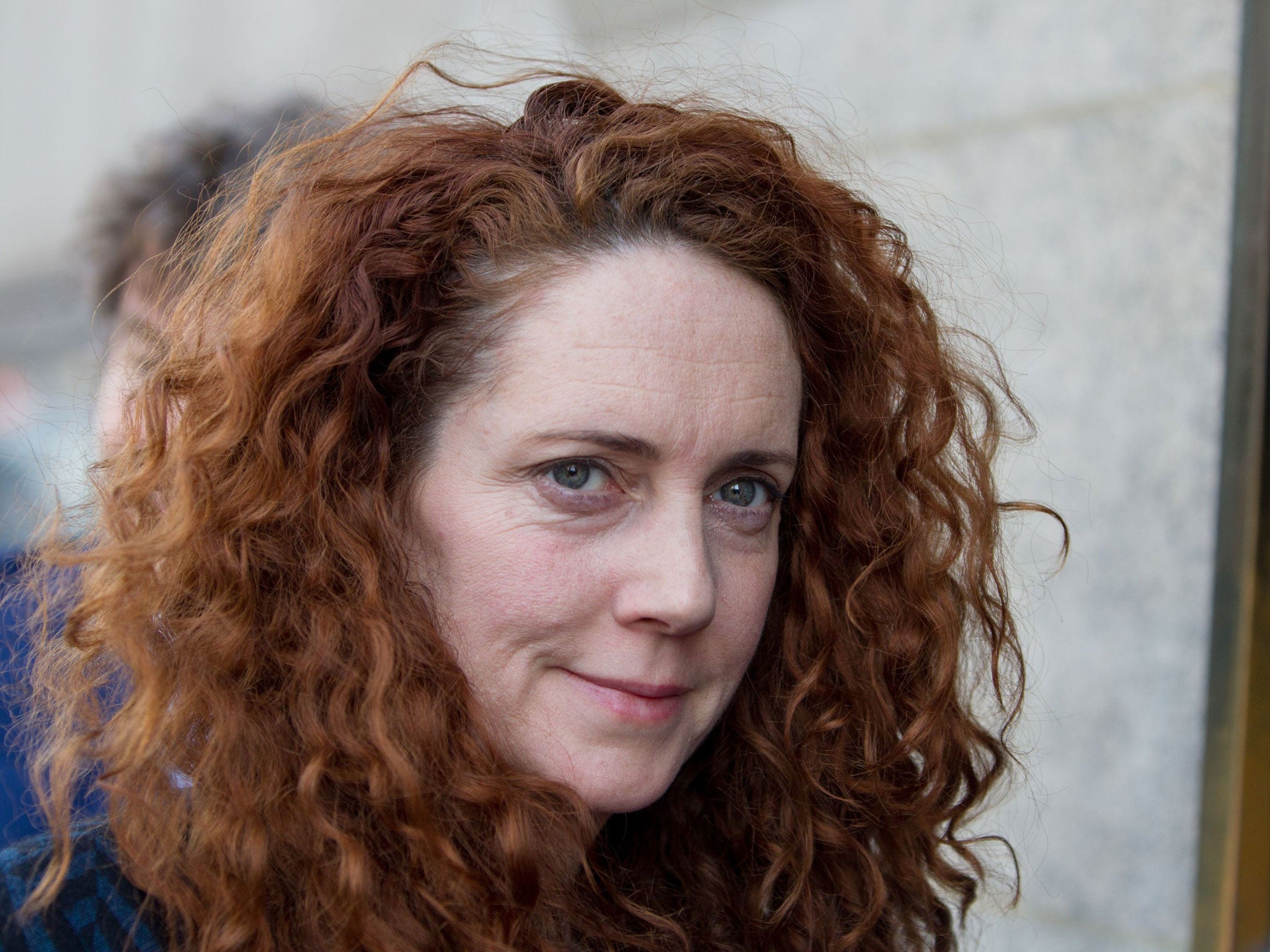Hacking trial: The Sun allegedly paid retired senior officers for military information, Old Bailey hears

Retired senior officers from Britain’s armed forces who were hired by "The Sun" newspaper to write expert opinion articles were also paid for military-related information they supplied to the Murdoch-owned paper, the Old Bailey has heard.
Details of the payments emerged during cross-examination of the former chief executive of News International, Rebekah Brooks.
In reply to a question from the lead prosecuting counsel, Andrew Edis QC, Ms Brooks accepted that she effectively “acted as a rubber stamp” by fast-tracking payments that were later discovered to have gone to public officials.
Ms Brooks has denied that she knowingly authorised payments totaling more than £80,000 that was paid to a single source who worked inside the Ministry of Defence.
She repeatedly told the court that she assumed payments requested by a senior Sun reporter for insider military information that often led to Sun exclusives and front page scoops, had not come from a public official.
She told the court that although the Sun operated a system which allowed money to be transferred to a Thomas Cook account and then later picked up in cash, this “did not equal something dodgy going on".
Ms Brooks told the court that the reporter who sent her emails asking for payments for a “number one military source” and “ace military contact” was “passionate, highly experienced and knew the rules”.
She said the reporter provided The Sun with “thousands of military stories every year”. The court has previous heard a description of the journalist as a “story machine”.
Mr Edis said that if anyone had read the sequence of payment requests from the reporter, they would have known there was a clear risk the money was going to a public official.
Ms Brooks replied: “That’s not how I read them." She said she had assumed that the reporter knew it was illegal to make payments to public officials, and that as he had a “plethora of contacts”, not all the payments were to the same individual.
Ms Brooks was directly asked: “You didn’t do your job [of asking where the money was going to], because you thought he [the reporter] was doing his?”
She told the court she had done her job, adding: “What I didn’t do was read the emails and see potential criminality involved.”
The judge, Mr Justice Saunders, intervened asking Ms Brooks if she had ever asked the reporter “what category of person” the information was coming from? She replied: “No, I didn’t.”
Asked by the prosecution if retired senior military personnel who had been hired to write opinion columns for The Sun, also sold the paper information connected to the military, Ms Brooks replied: “Yes”.
Ms Brooks has been charged with authorising 11 identified payments totaling £38,000 to Bettina Jordan Barber over a three year period during which she edited Rupert Murdoch’s Sun.
Jordan Barber worked for the army secretariat in Andover and had been vetted to allow her to analyse information collated for government briefings.
Ms Brooks was also questioned about payments made to police officers. She told the court that she never knowingly paid for information, or sanctioned payments that went to police officers in return for information that had been acquired in the course of carrying out their duties.
She also denied The Sun ever made payments to police officers “during the time of my editorship".
She told the court: “There isn’t one journalist in Fleet Street who does not know that you don’t pay police officers.
Ms Brooks has previously told the court that she operated a “high bar” for reporters who broke the law in the course of researching a story and this only occurred when there was “overwhelming” evidence of the action being in the public interest.
Mr Edis put it to her that public interest played little or no role when it came to paying officials or the police for stories that aided The Sun’s commercial success. He said that none of the emails shown to the court, which requested payments for contacts or sources, had mentioned “public interest”.
He told Ms Brooks: “None of these people were saying ‘listen boss, it would be in the public interest to make these payments because of A,B,C, D or E'."
Ms Brooks said such assessments were made by department heads and other executives at The Sun all the time.
Ms Brooks is among six defendants accused of conspiracy to hack phones, bribery of public officials and of involvement in a conspiracy to pervert the course of justice. All deny the charges against them.
The case continues.
